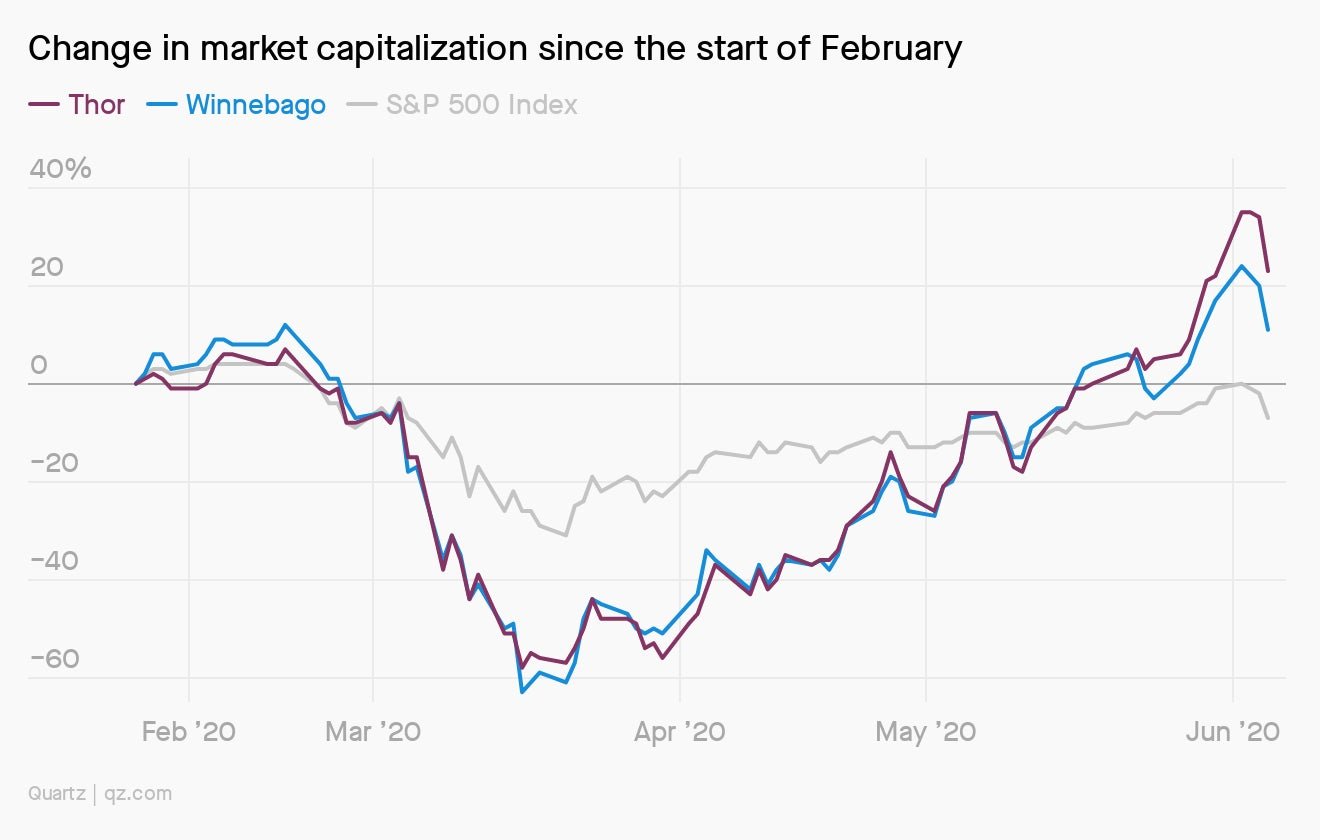Europe reopens, Maria Ressa convicted, wooden dollars
Good morning, Quartz readers!

Good morning, Quartz readers!
Here’s what you need to know
Journalist Maria Ressa was convicted of cyber libel. The CEO and executive editor of Philippines-based news outlet Rappler, and former researcher-writer Reynaldo Santos, were found guilty over an allegedly defamatory article linking a businessman to drugs and human trafficking. Their conviction under the country’s 2012 cyber libel law confirms fears that it will be used to crack down on press freedom.
Europe starts to reopen borders. Many restrictions in the Schengen area will ease for fellow Europeans today in a bid to salvage the summer travel season, with a patchwork of different rules across countries. In England, non-essential shops reopen today for the first time in nearly three months, and all public transport passengers must now wear a face covering.
Boris Johnson and EU leaders meet. The British prime minister is expected to press the EU to finalize a post-Brexit free-trade pact by the end of the summer, but EU officials say they don’t plan on a breakthrough. Meanwhile, Johnson announced he would set up a government commission to look into racial inequalities in response to global Black Lives Matter protests.
A new coronavirus cluster sent Beijing into lockdown. A spike in dozens of Covid-19 cases linked to the massive Xinfadi wholesale food market prompted fears of a second wave in China’s capital. Sporting events and tourist sites were shut on Saturday, and neighborhoods near the market have been locked down. Separately, a gas tanker exploded on Saturday in Zhejiang province, killing at least 19.
New Zealand has fans in stadiums again. Following prime minister Jacinda Ardern’s announcement that New Zealand has no known cases of Covid-19, 20,000 rugby fans packed into a Dunedin stadium for a Saturday match with no social distancing protocols.
Speaking of music, we’ll be randomly selecting one reader who refers a friend to the Daily Brief to receive a pair of Bose noise-canceling headphones. Referring readers to the Quartz Daily Brief helps support our journalism directly.
What to watch for
Monday: Irish parties sign a coalition deal to end months of political deadlock. Mexico City begins to lift restrictions on car traffic and public transport.
Tuesday: US Federal Reserve chairman Jerome Powell appears before the Senate banking committee.
Wednesday: The English Premier League restarts.
Thursday: The Bank of England meets and is expected to expand its asset purchasing program. China’s online retail giant JD.com lists in Hong Kong after raising $3.9 billion.
Friday: Tokyo drops all coronavirus business restrictions, Japanese baseball season begins, and Chinese basketball resumes following a months-long hiatus.
Charting the rising popularity of RVing

Recreational vehicles—trailers (towed behind cars), campers, and motor homes—aren’t a necessity, and so they become more popular when people have more money to spend on discretionary purchases. In March’s market slide, the values of Thor and Winnebago, the two biggest publicly traded RV companies, cratered faster than the S&P 500 index.
But their stock prices have outpaced it since, and soared in late May as signs of a promising summer become clearer. Many people who may have been confined to their homes are turning to RVs as a way to travel with limited risk of infection.
For Members: Science’s great pandemic pivot
Quartz spoke with four major global institutions to highlight how scientists are pivoting to focus on Covid-19. Here are some of the changes they have had to make:
The Max Planck Institute of Experimental Medicine in Germany shifted from “generating mouse mutants” to testing for coronavirus, helping the city of Göttingen to reopen.
Scientists at the African Center of Excellence for Genomics of Infectious Diseases in Nigeria went from working on a rapid diagnostic kit that would test for malaria, Lassa fever, and Ebola all at once to coronavirus testing and sequencing
Israel’s Migal Galilee Research Institute went from working on a vaccine for chicken coronavirus to applying their knowledge to creating a vaccine for Covid-19.
The Jenner Institute at the University of Oxford in the UK dropped their work on more than 15 diseases, including MERS, HIV, Ebola, Zika, malaria, lung cancer, and prostate cancer, to focus on producing a potential coronavirus vaccine.
Read more about the work of these institutions in our field guide on science’s great pandemic pivot.
✦ To gain access to all the stories, presentations, field guides, workshops, and more available exclusively to Quartz members, try a seven-day free trial. ✦
Surprising Discoveries
A startup is on the defensive about its orgasm-identifying algorithm. Cyprus-based Relida Limited said its code could “validate” female orgasms 86% of the time.
Russian prison guards walked on broken glass. It was part of a “self-awareness course” for guards in one of the country’s strictest penitentiaries.
Researchers found ancient survival gear for use in rainforests. Many of the tools are made of monkey bone, and were discovered in a cave in Sri Lanka.
A former Nazi submarine base is now a digital art library. Les Bassins de Lumières opened last week after a nearly two-month delay.
A small town in Washington is printing its own currency. It’s issuing wooden dollars for exclusive use at local businesses in an attempt to cushion the pandemic’s economic blow.
Our best wishes for a productive day. Please send any news, comments, broken glass, and questionable algorithms to [email protected]. Get the most out of Quartz by downloading our app on iOS or Android and becoming a member. Today’s Daily Brief was brought to you by Mary Hui, Isabella Steger, Jenni Avins, Jackie Bischof, Daniel Kopf, Alexandra Ossola, and David Yanofsky.